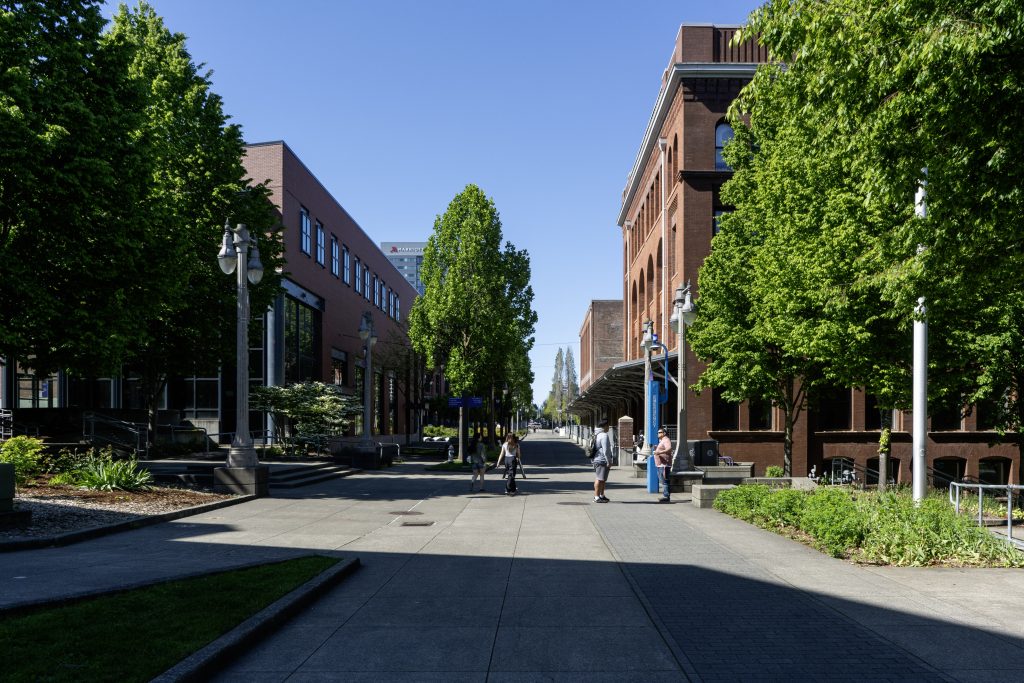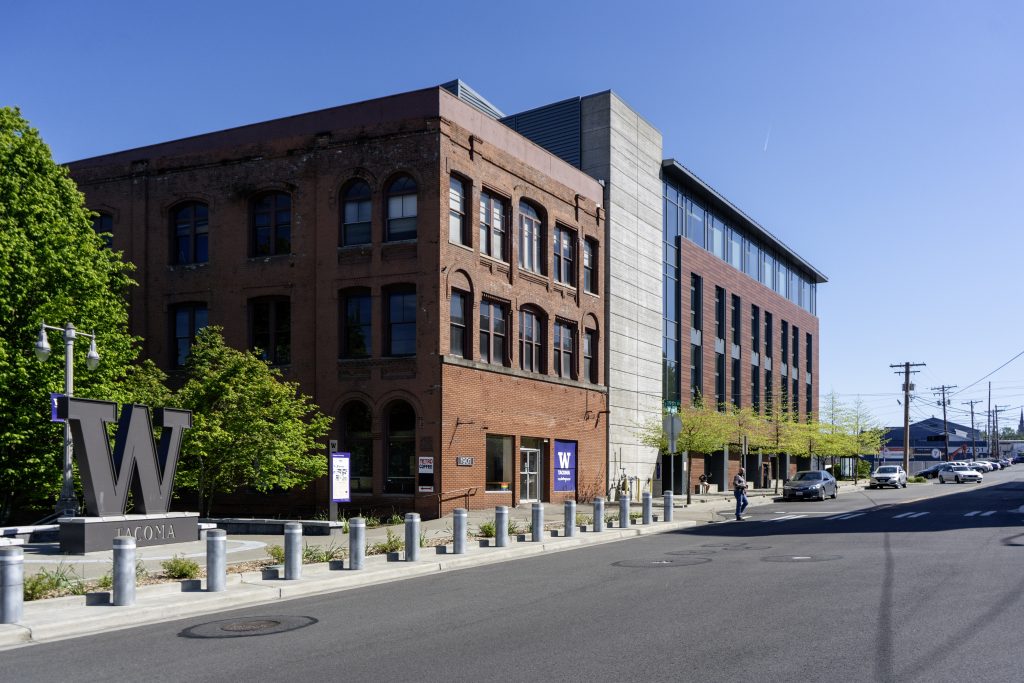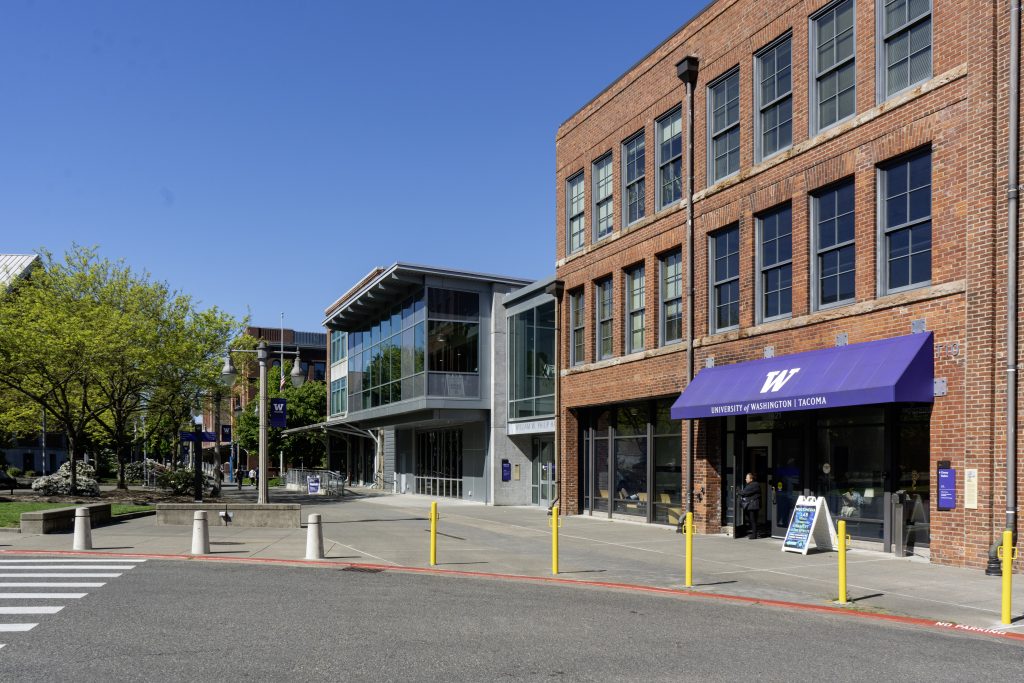Associated Students of UWT release revealing results of student health and food equity surveys
ASUWT recently released their student surveys from the 2023-2024 school year to learn how to best meet student needs.
The Associated Students of UW Tacoma (ASUWT) released the results of two of their student surveys, aimed to administer feedback to the school regarding what aspects of food and wellness needs are favorable.
The two surveys released were the Student Health and Wellness survey and the Student Food Equity and Basic Needs survey.
The ASUWT surveys were provided by the ASUWT Health and Wellness Taskforce and the ASUWT Food Equity Taskforce. ASUWT President Holly Wetzel stated in the surveys that ASUWT seeks to empower the entire UW Tacoma community to promote the needs and interests of students.
To maintain accurate results, students were required to sign in with their UWNetID to take the surveys. Bi-weekly emails, direct communication to students and table sessions on campus were all promoted to increase the sample sizes.
The Student Health and Wellness survey was created to gain a deeper understanding of students’ needs, following a time period at the end of Autumn quarter that indicated that there are areas for improvement in campus life and student satisfaction. The survey was available to students from Nov. 13, 2023 to Jan. 31, 2024.
Students were polled on various resources on campus, such as the Psychological and Wellness Services (PAWS), the food pantry and the UW YMCA. Students were asked which resources they are aware of, along with which resources they have used or are currently using.
There were concerns from ASUWT about the food pantry, which over 80% of students are aware of, yet less than 40% use, according to the survey. The cause of concern is because data over the previous 5 years state that approximately 40-45% of students experience food insecurity, resulting in ASUWT to expect a higher percentage of current students that have used the resource.
Students were asked to provide feedback on each service, with the feedback being grouped into either positive, neutral, or negative categories. 10 of the 13 services received over 70% positive feedback, with HuskiesCare, Free NARCAN Training and Distribution and Campus Meditation Room receiving 55%, 66%, and 66% respectfully. All three services received 0% negative feedback, however, with mixed experiences and lack of awareness falling under neutral feedback.
Only 2 of the 13 resources received over 10% negative feedback, with PAWS and the Food Pantry respectfully receiving 11% and 10%. Students reported unmet needs for neurodivergent students and appointment issues for the PAWS. Regarding the Food Pantry, students cited stock issues, conflicting schedules and accessibility reasons as room for improvement.
The Food Equity and Basic Needs survey was available from Jan. 1, 2023, to Jan. 31, 2024 and was created because of significant concern about the basic needs of students, per the introduction of ASUWT’s report.
The report found that 44% of UWT students experience food insecurity, which is 21% above the national average at 23%, according to the National Center for Education Statistics.

UW Tacoma Nursing and Healthcare Leadership Faculty Dr. Christine Stevens has done biannual research on the food insecurity of UW Tacoma students. Dr. Stevens has found an increase in food insecurity on campus, with an 8% increase since 2016.
The Food Equity and Basic Needs survey asked students if they experience some form of stigma affecting their willingness to use free food resources like the Food Pantry, the Nourish Food Truck and the Food Cupboard, with a reported 55.6% students answering yes.
In the last 12 months, only 9% to 29% of students reported using any of the free food resources, implying that there are potential barriers to access causing all students experiencing food insecurity being unable to use these resources.
Students reported high numbers of dissatisfaction with the Food Pantry, citing long wait times, low availability, restocking and operating hours as room for improvement. 26.5% of students reported positive experiences overall, and 35.7% of students stated that they found what they were looking for at the pantry. 87.7% of students expressed feeling welcomed and comfortable in the pantry, with the most common critique of the Food Pantry being the quality of the food.
The Nourish Food Truck received more positive reviews, with the highest reported suggestion being that the truck is on campus more days or different times throughout the week. 81.2% of students reported positive or mixed experiences finding what they needed and 98.1% of students stated they felt welcomed and comfortable in the truck.
The Food Cupboard received 64.6% positive feedback, with the highest suggestions of change requesting higher quantity and variety of food. 48.3% of reported students stated they found what they were looking for, and 43.1% of students stated that they did not find what they were looking for, requesting items such as breakfast foods, nutritional drinks and ready to eat cultural foods be added. 96.2% of students felt welcome and comfortable at the cupboard.
ASUWT also asked supplemental questions about the Food Pantry, with results that show 68.3% of students believe a student advisory board that receives student feedback into the pantry’s operation should be implemented. 83.1% of students reported that they would support the relocation of the pantry if it was moved to a department that could provide better resources, more food options and expanded services.
Further questions also suggested that a shuttle service to grocery stores for Court 17 residents would be beneficial, and that a dining hall like UW Seattle and UW Bothell would provide a stronger sense of belonging for students. 43.4% of students reported that they would be more inclined to live on campus if there were more housing options on campus and 37.3% of students said they would not be more inclined.
Students are encouraged to attend and participate in ASUWT Board and Senate meetings. Board meetings take place every Tuesday from 1 p.m. to 2 p.m. in MDS 312. Senate meetings take place every Thursday from 12:30 p.m. to 1:30 p.m. in GWP 320.

‘Featured Building’ Cherry Parkes and Philip Hall Buildings. Photo by Cameron Berrens.




